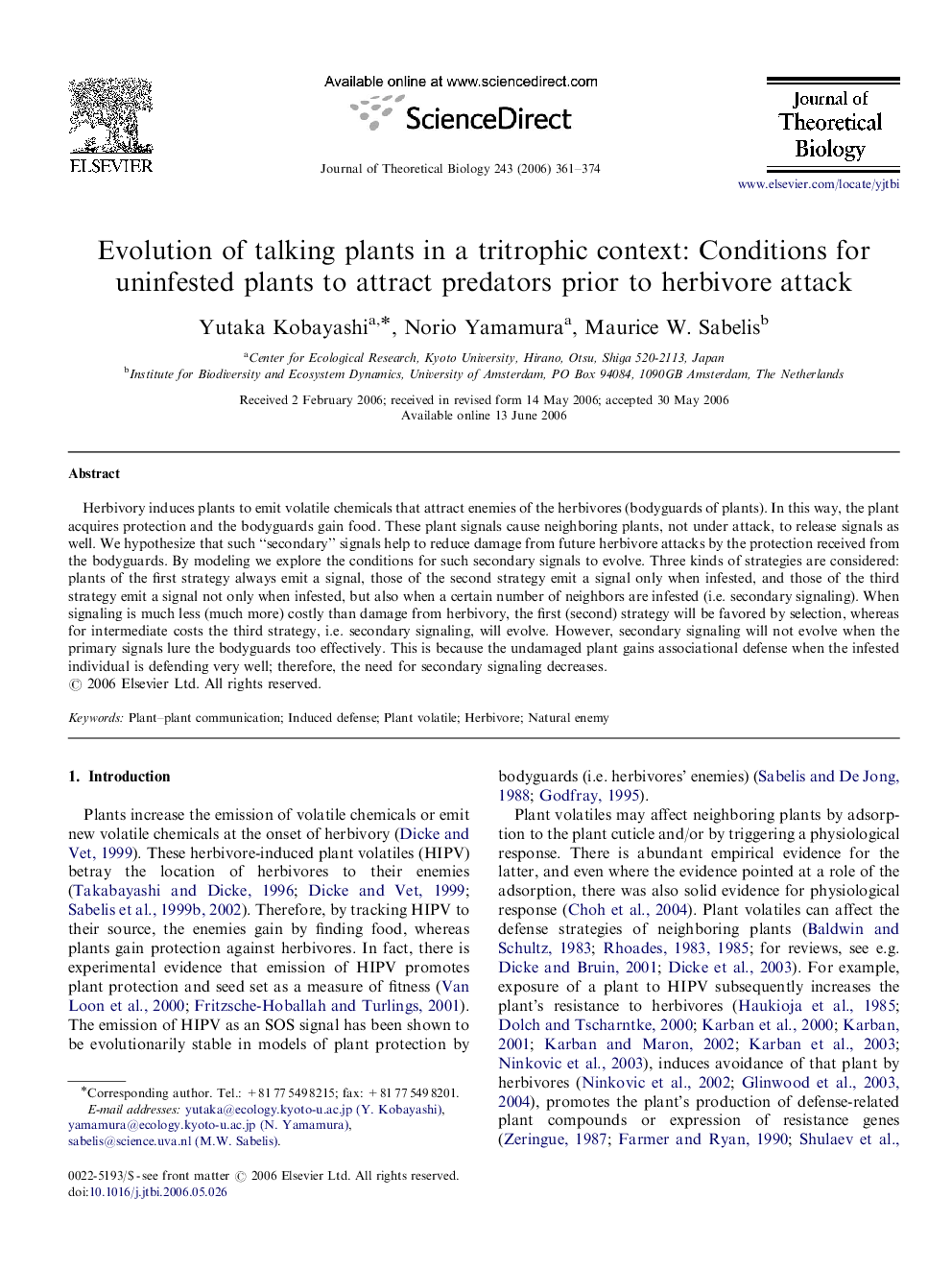| کد مقاله | کد نشریه | سال انتشار | مقاله انگلیسی | نسخه تمام متن |
|---|---|---|---|---|
| 4499210 | 1319019 | 2006 | 14 صفحه PDF | دانلود رایگان |
عنوان انگلیسی مقاله ISI
Evolution of talking plants in a tritrophic context: Conditions for uninfested plants to attract predators prior to herbivore attack
دانلود مقاله + سفارش ترجمه
دانلود مقاله ISI انگلیسی
رایگان برای ایرانیان
کلمات کلیدی
موضوعات مرتبط
علوم زیستی و بیوفناوری
علوم کشاورزی و بیولوژیک
علوم کشاورزی و بیولوژیک (عمومی)
پیش نمایش صفحه اول مقاله

چکیده انگلیسی
Herbivory induces plants to emit volatile chemicals that attract enemies of the herbivores (bodyguards of plants). In this way, the plant acquires protection and the bodyguards gain food. These plant signals cause neighboring plants, not under attack, to release signals as well. We hypothesize that such “secondary” signals help to reduce damage from future herbivore attacks by the protection received from the bodyguards. By modeling we explore the conditions for such secondary signals to evolve. Three kinds of strategies are considered: plants of the first strategy always emit a signal, those of the second strategy emit a signal only when infested, and those of the third strategy emit a signal not only when infested, but also when a certain number of neighbors are infested (i.e. secondary signaling). When signaling is much less (much more) costly than damage from herbivory, the first (second) strategy will be favored by selection, whereas for intermediate costs the third strategy, i.e. secondary signaling, will evolve. However, secondary signaling will not evolve when the primary signals lure the bodyguards too effectively. This is because the undamaged plant gains associational defense when the infested individual is defending very well; therefore, the need for secondary signaling decreases.
ناشر
Database: Elsevier - ScienceDirect (ساینس دایرکت)
Journal: Journal of Theoretical Biology - Volume 243, Issue 3, 7 December 2006, Pages 361-374
Journal: Journal of Theoretical Biology - Volume 243, Issue 3, 7 December 2006, Pages 361-374
نویسندگان
Yutaka Kobayashi, Norio Yamamura, Maurice W. Sabelis,